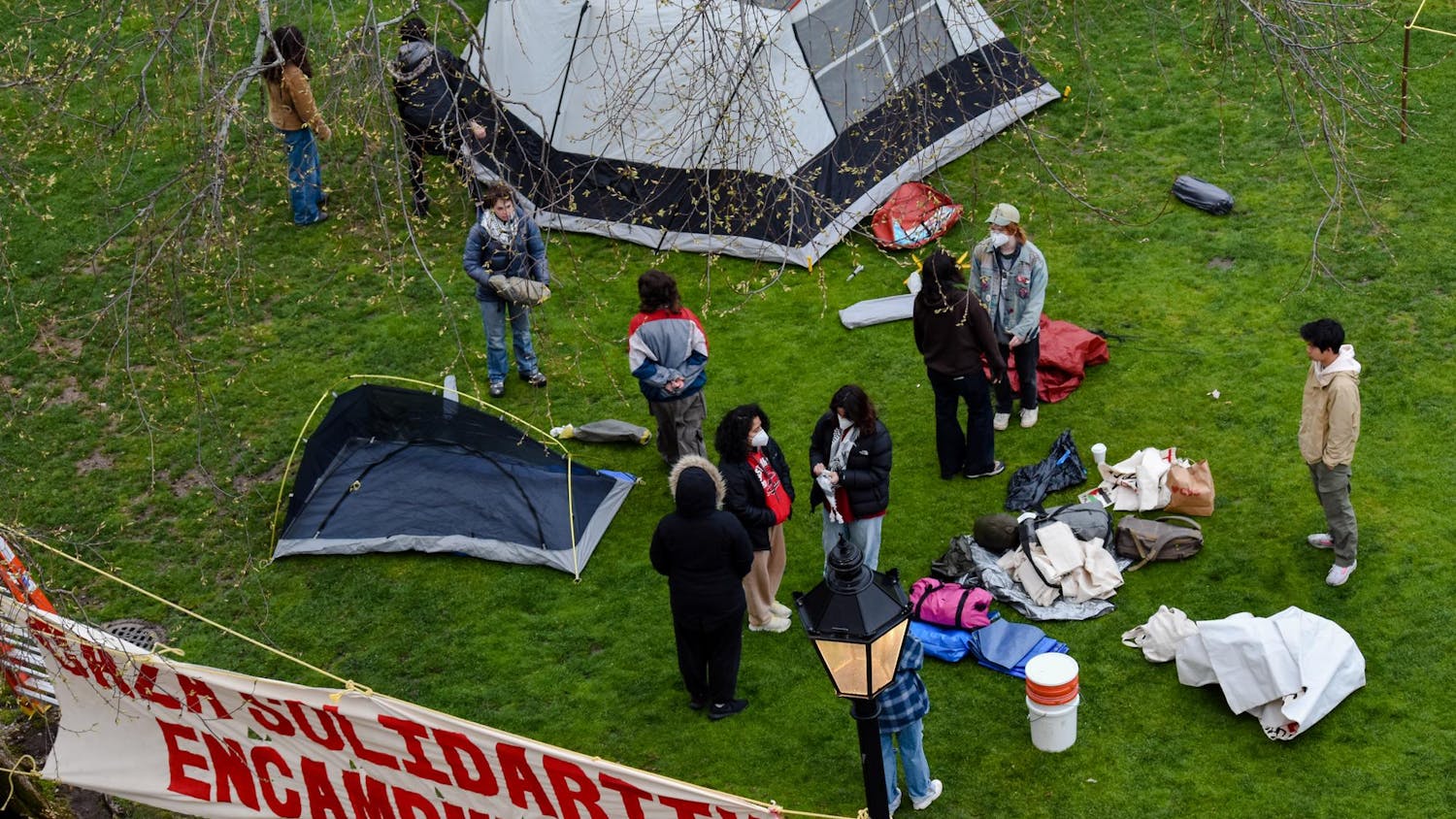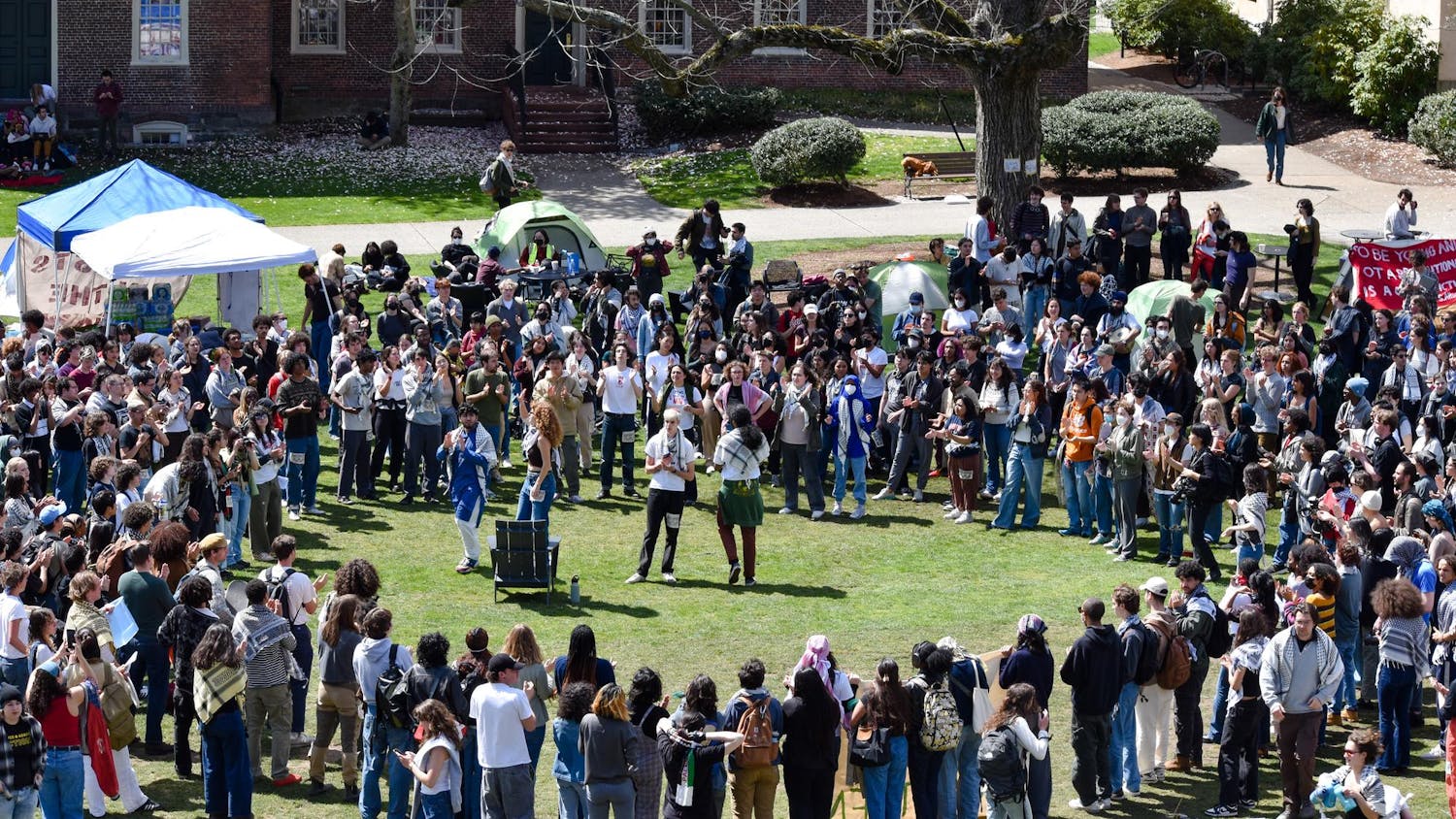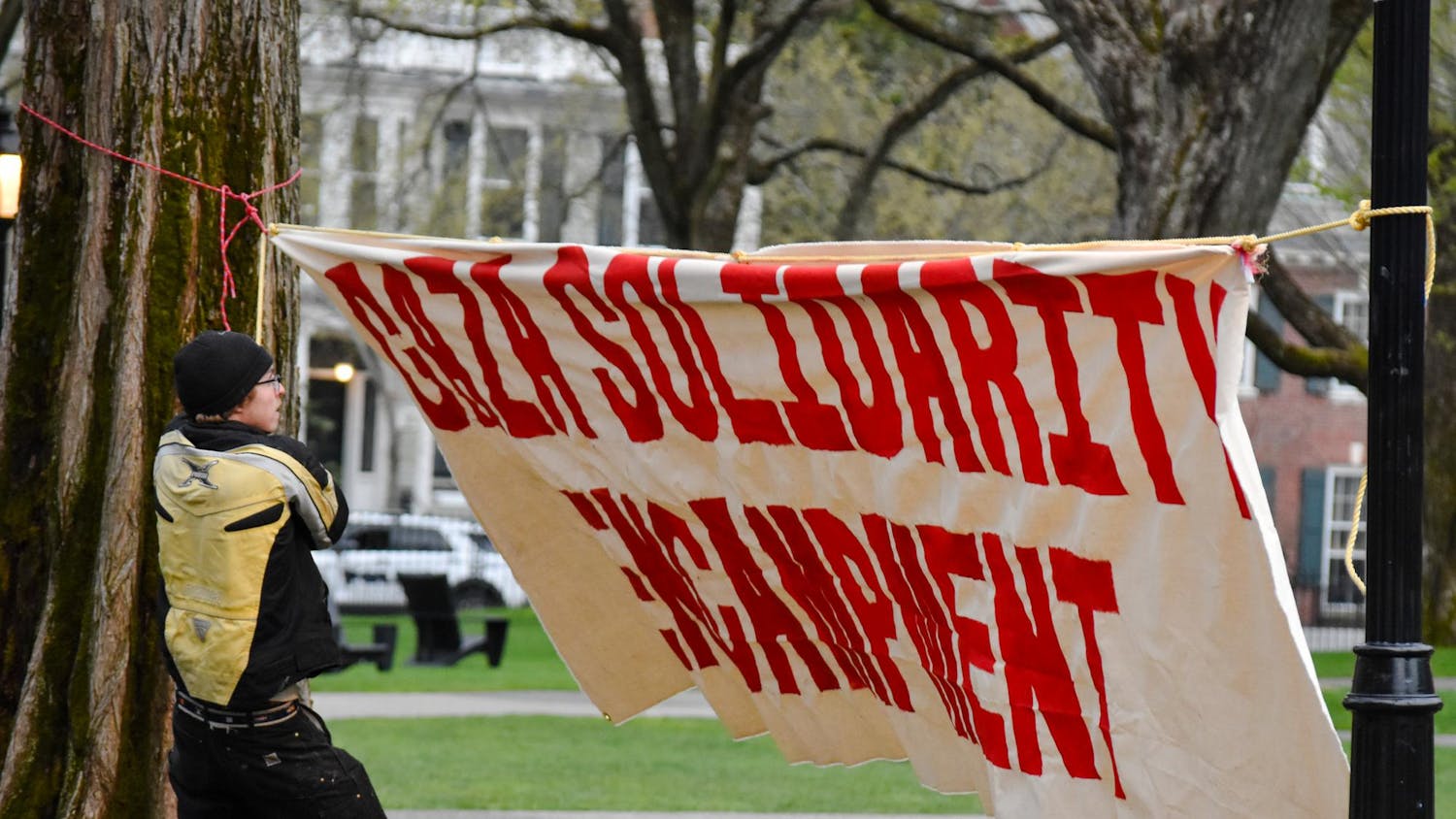Over 100 students, professors and community members crowded into MacMillan 117 last night for the Janus Forum Town Hall panel on the presence of the Reserve Officers' Training Corps at Brown.
Luther Spoehr, senior lecturer in education, spoke first, advocating for the return of ROTC to campus. Though ROTC instructors should not be given faculty status and students should not receive credit for military courses, ROTC could provide many benefits for Brown, particularly by improving its public image, he said.
"For the past 40 years, some colleges and universities, including Brown, have taken the attitude that they are too pure to be sullied by contact with the military. This attitude must change," Spoehr said.
The presence of ROTC cadets on campus "will expand significantly the meaning of diversity" as well as allow students to abandon military stereotypes and move away from prejudice, he said. "It comes down to the University's self-interest and self-respect. It's hypocritical for the University to live off its privileged position in American society and not give back. ... Restoring ROTC now would be a useful and significant statement. We should make that statement and we should make it now," Spoehr said.
The next speaker, Amit Jain '12, said he could not support the program because of the military's policy on those who identify as transgender. The military defines being transgender as a gender identity disorder. People who express this identity — for example, by requesting to wear the uniform of the opposite sex — are at risk of being dishonorably discharged, he said.
The military's transgender policy goes against Brown's discrimination policy, he said, which states that the University does not discriminate based on gender identity or gender expression.
"Transgender Americans face discrimination across all walks of American society. ... The transgender community is marginalized, degraded and denied at every turn," Jain said. "As a student who believes in our country and believes in our military, but also believes in human rights and the rights of our peers, I believe we should depart from our peer institutions."
Joy Joung '11, who until recently was the only ROTC cadet on campus, advocated for ROTC's reinstatement. She began by addressing sexual assault in the military and said there is only a minor difference between the proportion of women who suffer sexual assault in the military — 33 percent — and the proportion who suffer sexual assault in college — 25 percent.
The military is a progressive institution in some ways, she said. For decades it has paved the way for social change, she said, citing women's rights, desegregation and the repeal of "Don't Ask, Don't Tell."
If the University does not allow ROTC back on campus, it would be hypocritical to continue its relationship with the Providence College ROTC program, she said.
The final speaker, Professor of English William Keach, applauded the military's repeal of "Don't Ask, Don't Tell", but cautioned that it may not resolve issues of LGBTQ discrimination. Attitudes within the military will be slow to change, he said.
The ideals of the University might not correspond with the ideals of ROTC, Keach said.
He quoted President Ruth Simmons' speech on the eve of the Iraq War. "Universities have a particularly important role to play in the advent of war. As in all times, universities must today cling to their commitment to the dispassionate search for truth. ... As scholars, true to our task, we are morally obligated to continue and strengthen that examination, bringing to light questions and insights that could be useful to the nation in the unwinding of war and the restoration of peace and prosperity. The task of the scholar to probe deeply and the role of the university to foster edifying debate must be protected especially in times of war."
ROTC may conflict with that inquiry, Keach said, adding it's important that a university stand back and observe the military.
"For me, it's not a question of aloofness or purity, but a question of engagement," he said. "There are a lot of ways in which the University can learn about and participate in the U.S. military and remain independent and retain its intellectual status."
Audience members from diverse perspectives took advantage of the question and answer session following the panel.
An audience member questioned how Brown could make its voice heard about discrimination policies within the military.
The best way to change the military is from within, and Brown is marginalizing itself by rejecting ROTC, Spoehr maintained. Brown should not marginalize itself, Jain agreed. But it might be more powerful for Brown to respectfully disagree with its peers, he said.
At the end of the forum, members of the Coalition Against Special Privileges for ROTC stood in the lobby asking audience members to sign a petition to keep ROTC off campus.
Julie Pittman '12, a member of the coalition, said she was surprised the forum "ended up being a forum to talk about how we feel about the military rather than how we feel about ROTC."
"I wish the debate could have centered around the idea of ROTC existing on campus as an extracurricular, and how even as an extracurricular it's problematic that we're providing support for a discriminatory program," she said.




